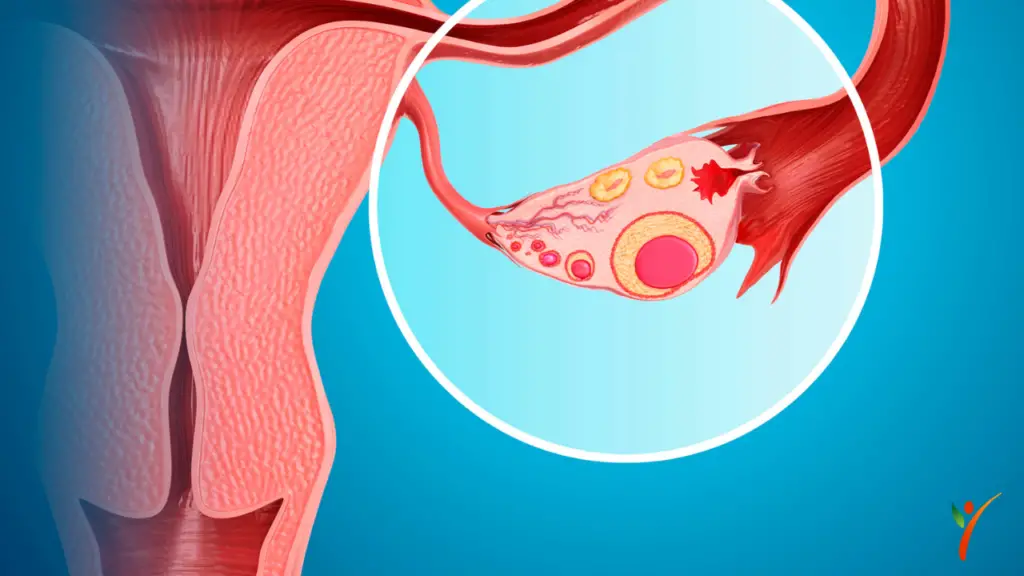The perfect family image some of us grow up with involves having a baby in our arms at some point in life. However, in some cases, people don't get pregnant no matter what they try. Ideal timing, no menopause, no complications, so what could be the reason?
Gluten sensitivity is a probable reason for infertility, especially when it goes undiagnosed. But how does gluten intolerance lead to infertility and pregnancy complications? Here's everything you need to know:
Gluten & Gluten-Sensitivity
Before we dive into the matter, it's better to know what gluten and gluten-sensitivity are and what sort of reaction gluten causes in people suffering from gluten-sensitivity. Only then can you understand what's happening in your body and how and why it can lead to infertility.

Gluten is a protein that you could call the “glue” that holds pastries together. It is found predominantly in food sources such as bread, pasta, pizza, and cereal. Our intestines are mainly responsible for the absorption of food.
After ingestion, food undergoes various changes. It's broken down into smaller and smaller units until it is simplified enough for the intestines to absorb. If there is any harm that befalls the intestine, our body won't get the nutrients it needs for more than just survival. Our body's immune system is highly competent.
There are rare cases where bacteria or any other foreign particle pose life-threatening circumstances to our health. The reason is that the immune system starts a cascade of reactions that defend the body's cells. Simultaneously, it also damages the “antigens” or the foreign particles capable of causing an infection.
Unfortunately, our body can also harm its cells and tissue. It happens when the body accidentally marks the cells and tissue as an infectious agent and starts the same cascade of violent reactions that otherwise proved beneficial. This abnormality is called an “autoimmune disorder.”
Gluten-Intolerance:
Gluten-sensitivity is one such disorder. It is a condition in which the body isn't ready to tolerate gluten; hence, the term ‘gluten-intolerance.' When a gluten-sensitive person's body detects gluten, it starts to harm the small intestine.
This chain of events can lead to serious health problems that aren't necessarily life-threatening but significantly drop the quality of life. Instead of discussing all the symptoms related to gluten-sensitivity, it is better to highlight the clinical correlations with infertility.
Infertility & Miscarriage- The Basics

If a woman cannot conceive after a year of having unprotected, timed sex, the condition can be termed infertility or the inability to conceive. Affecting about ten percent of the couples in the US, this condition is probably one of the most complicated ones for an obstetrician or a gynecology specialist to treat.
The cause can either be due to a male problem, a female health issue, or both. The primary cause of male infertility is either low production of sperm or production of abnormal sperm. Several reasons and factors are responsible for female infertility related to problems with ovulation.
Secondary infertility, or the inability to conceive a second child, can be due to structural damage to the female reproductive system. Stress can cause infertility since it hampers ovulation and can disrupt a regular menstrual cycle. So, instead of discussing all the causes of infertility and miscarriages, it is better to focus on only those directly related to gluten-sensitivity.
Gluten And Infertility

Even if you're not gluten-sensitive, researchers have proved that gluten can be a fertility inhibitor. Although the exact process due to why this happens is yet unclear, there is an established link that gluten can be a primary reason why someone's not getting pregnant even after repeated attempts.
But there is plausible evidence to support the theory that in gluten-sensitive patients, gluten intake can lead to infertility. Although inconclusive researches have failed to prove the link between gluten and male infertility, this isn't the case for female infertility.
Intestinal Damage:
The healthier you are, the higher the chances to get pregnant. Gluten damages intestinal tissue, so the absorption of nutrients significantly reduces. You may eat healthy food all day long, but you won't get the necessary nutrients. And these nutrients are required for getting pregnant and even maintaining pregnancy.

For instance, there is a decrease in the production levels of thyroid hormone in hypothyroidism. Thyroid hormone, or thyroxine, is amongst those hormones responsible for ovulation, or the egg release that makes fertilization possible. If the ovary doesn't release the egg, the sperm can't fertilize it, and there will be no conception.
Selenium is a mineral absorbed by the intestine and is responsible for maintaining normal thyroid hormone levels. Due to gluten intake, the body suffers from selenium deficiency because the intestine isn't performing its function of uptake of adequate quantities of selenium. This condition leads to hypothyroidism, which in turn causes infertility.
After the egg's release, the uterus, where the baby is later attached or implanted, needs some time to prepare itself for conception. This phase happens in the second half of the menstrual cycle. Hypothyroidism shortens the duration of this half, and the uterus doesn't get enough time to make preparations for conception and implantation, and without implantation, pregnancy is impossible.
Hypothyroidism is also associated with the onset of a condition called ovarian cysts, a significant cause of infertility. Other nutrients critical for ovulation and fertility include iron, zinc, vitamin D, and various proteins and fats. Malabsorption of all of these due to intestinal damage can lead to infertility and prevent pregnancy.
Gut Dysbiosis:
This is a very fancy term regarding a relatively simple phenomenon, but before we explain it, you should understand that there are certain good bacteria too that help the body in numerous ways. Since childhood, most of us consider bacteria as harmful pathogens that only cause diseases.
However, that isn't what bacteria are. Numerous bacteria in the body develop a relationship that benefits both the bacteria and the host tissues. Such mutualistic bacteria are abundant in the gut and vagina. Due to damage to the digestive tract, the stomach bacteria get killed, and their number decreases. This condition is called gut dysbiosis.

Gut dysbiosis and diminished nutrient absorption also have a detrimental effect on vaginal bacteria. Vaginal flora is a term used for the microorganism living in or on the body. In normal circumstances, vaginal flora creates a healthy environment for sperm survival. It also helps in the attachment and implantation of the fertilized egg with the uterus.
The imbalance of vaginal flora causes issues in normal fertility and fertilization. It can also lead to miscarriages, usually in the second trimester, and the baby's premature birth. Post-birth complications in the uterus are common in such cases, which can hamper and cause complexities in the upcoming pregnancy.
Ovarian Reserve:
Ovarian reserve is the capacity of an ovary to produce and release such eggs that possess the capability to get fertilized by a sperm and result in a successful pregnancy. The higher this reserve, the higher the chances of pregnancy.

Thus, the diminished ovarian reserve can lead to female infertility. This decreased reserve can also be due to the gluten intake of a female gluten-sensitive patient, and it continuously decreases as long as this intolerance is left untreated. Various researches conducted have supported this theory.
Amenorrhea:
If a woman misses three consecutive periods when she shouldn't, such as before menopause, her condition is called amenorrhea. A missed period means a disrupted menstrual cycle, which also means skipped ovulation. Without ovulation, pregnancy cannot occur, and this leads to infertility.

Several researchers have proved that gluten-sensitivity and celiac disease contribute to irregular periods. A study concluded that about 20% of the females suffering from gluten-intolerance also suffer from amenorrhea, while this percentage is only 2.2 for healthy women.
In another study, the percentage of women missing their periods turned out to 39% among celiac patients and 9 percent among non-celiac females. In most cases, getting the disease diagnosed and starting proper treatment seemed to relieve the condition.
Final Words

Starting a family with your significant other should not be an issue because you are gluten intolerant. Gluten intolerance does affect fertility but only so as long as it goes undiagnosed. Once you're on the right track with a gluten-free diet and the proper precautions, infertility won't be a problem.






